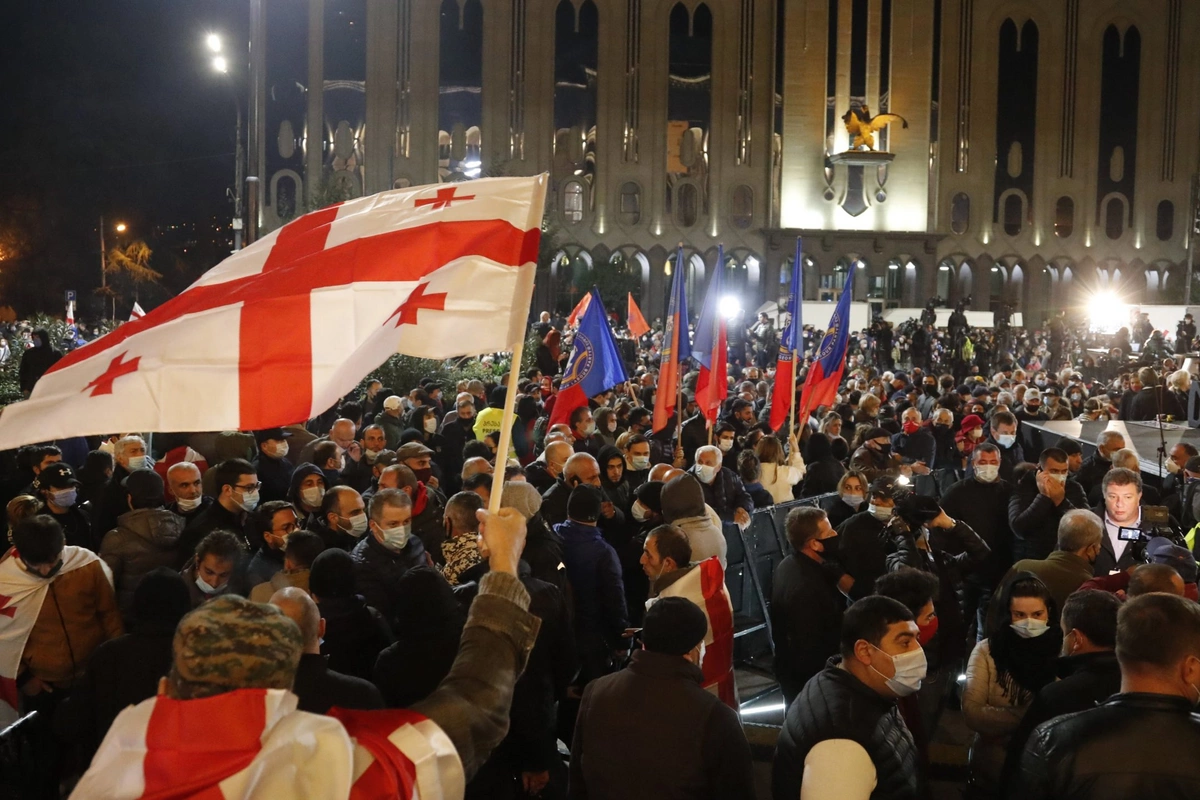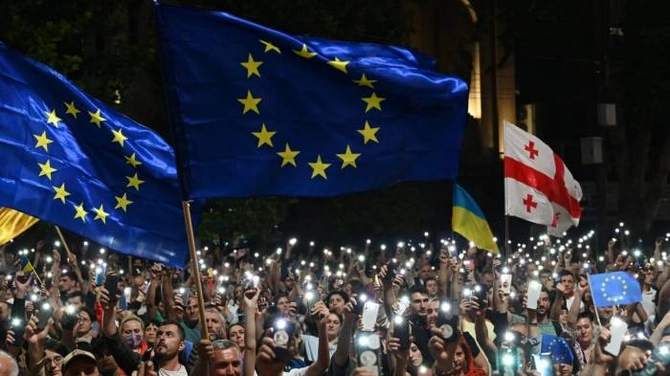
The ongoing internal political confrontation in Georgia unfolds between supporters of European integration and pro-Russian forces. From the early years of its independence, the country experienced a bloody civil war, which led to the loss of South Ossetia, Abkhazia, and de facto autonomy for Adjara. Under the presidency of Eduard Shevardnadze, ties with Russia strengthened, but this path was not acceptable to all. The "Rose Revolution," which brought Mikheil Saakashvili to power, set clear priorities: restoring territorial integrity and joining the European Union. Saakashvili successfully and bloodlessly reintegrated Adjara, thanks to Russia's neutrality. However, the war of August 8, 2008, undermined the revolutionaries" positions and forced them to relinquish power.
From a geopolitical perspective, Georgia occupies a special position as the gateway to the South Caucasus. It is the only South Caucasian republic with access to the Black Sea and, through it, to the global ocean. This makes Georgia a focal point for the rivalry between the West and the East.
In recent years, supporters of closer ties with Russia have gained momentum, driven by pragmatic economic considerations. Russia remains one of Georgia's largest trading partners. As of 2022, Türkiye accounted for $964 million in trade, Russia for $837 million, China for $498 million, the United States for $480 million, and Azerbaijan for $401 million. Russian tourists and migrants have become a significant source of income for the country: from January to September 2022, Georgia received $2.2 billion in remittances from Russia, 2.6 times more than in the same period in 2021. Revenues from remittances, tourism, and exports to Russia accounted for 12.6% of Georgia's GDP.
Russian citizens are actively registering businesses in Georgia: from March to September 2022, 9,500 legal entities were created, ten times more than in 2021. By September 2022, the total number of Russian companies in Georgia reached 17,000, with 97% of them being sole proprietorships.
Economic dependence on Russia is evident: 63% of Georgian wine exports are destined for the Russian market. Over nine months in 2022, imports from Russia grew by 73%, reaching $1.2 billion - the highest level in 16 years. Fuel supplies from Russia increased by 360%, with Russian fuel accounting for 44% of the market. Coal imports grew 2.5 times, while wheat and flour imports from Russia covered 96% of Georgia's needs.
Severing economic ties with Russia would deal a significant blow to Georgia's economy, which has only recently begun to grow. Between 1990 and 2022, the country's GDP rose from $8.9 billion to $24.6 billion. However, close ties with Russia are likely to weaken if Georgia becomes an EU member. This prospect worries many citizens, as reflected in the election results, where the ruling Georgian Dream party secured 53.92% of the vote.

Photo: AFP
Supporters of European integration, backed by the West, have not accepted their loss of influence. Protests near the parliament building in Tbilisi and other cities have taken place under slogans such as "No to the Russian government" and "Georgia belongs in Europe." The opposition, led by President Salome Zourabichvili, claims that the Georgian Dream government has deviated from the pro-European course enshrined in the Constitution and demands its resignation. Zourabichvili calls for new elections under the supervision of international observers, arguing that the results of the last parliamentary elections signify "Georgia's subjugation to Russia."
Opposition parties, including the United National Movement and the Coalition for Change, support Zourabichvili. Nika Gvaramia, a leader of the coalition, describes the government's actions as a "constitutional coup." Prime Minister Irakli Kobakhidze dismisses these allegations, emphasizing that the government aims to strengthen the country's sovereignty and normalize relations with Russia.
The country is on the brink of another political crisis, which weakens Georgia and hinders its long-term national goals. The outcome remains uncertain, but it is clear that the ongoing confrontation does not serve the country's best interests.
Share on social media